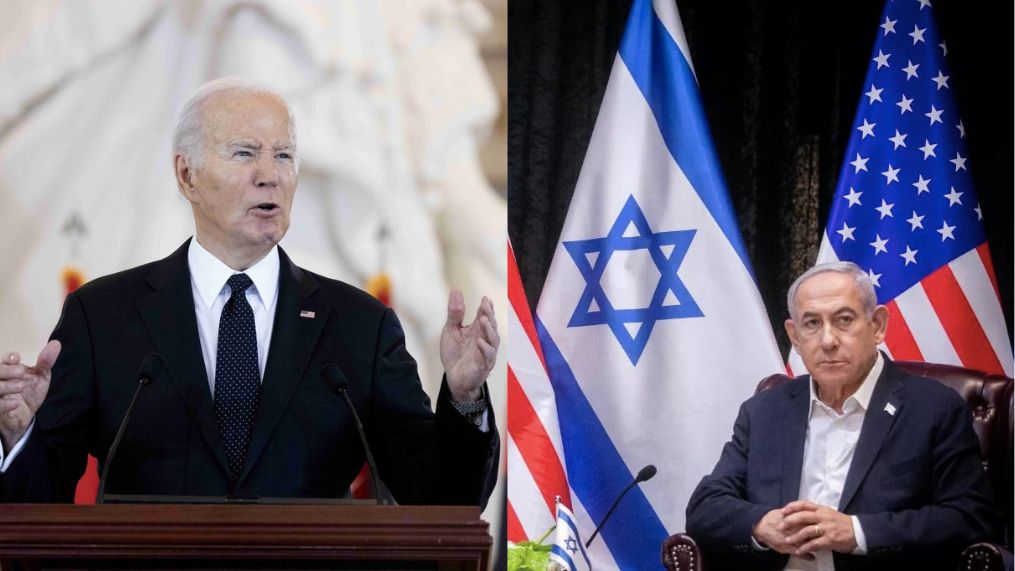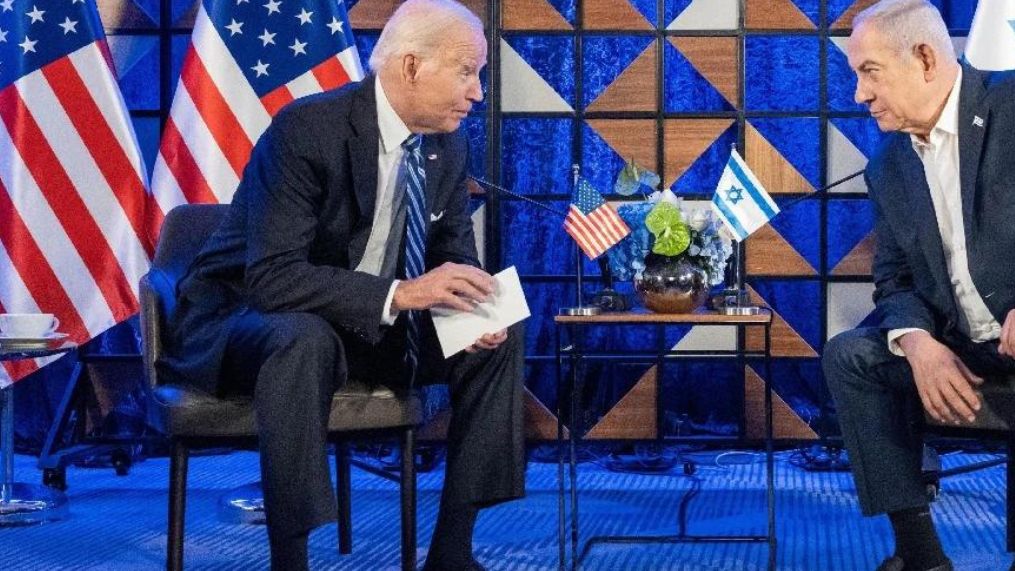President Joe Biden‘s intervention in the Israel-Gaza conflict escalated when he directly confronted Israeli Prime Minister Benjamin Netanyahu over civilian casualties.
The trigger was an April 4 phone call, following the deaths of aid workers in an Israeli airstrike. Biden’s ultimatum to Netanyahu emphasized the imperative of protecting civilians and aid workers, warning of potential shifts in U.S. policy.
Amid mounting pressure from international allies and within his own party, Biden’s call marked a turning point. Despite previous tense exchanges, this conversation was decisive.
It signified a departure from previous reluctance to leverage aid as a means of influence.
Last week, the White House took action in line with Biden’s warning. The U.S. halted a shipment of heavy bombs to Israel, citing concerns over its military operation in Rafah.
The move underscored Washington’s opposition to large-scale Israeli offensives without adequate safeguards for civilians.

Biden’s stance reflects broader sentiments within the Democratic Party and international community. There’s growing insistence on conditioning aid to Israel, particularly in light of civilian casualties.
The administration’s decision sends a clear message: civilian protection is non-negotiable.
However, Biden’s move faced criticism from Republicans, who staunchly support Netanyahu. They accused Biden of undermining Israel’s security, highlighting divisions within U.S. politics over the issue.
Despite tensions, Biden’s administration views dialogue with Netanyahu as important. Maintaining influence over Israel’s actions is a cornerstone of U.S. foreign policy in the region.
Yet, Netanyahu’s defiance of Biden’s advice on Rafah raises questions about the extent of American influence.
As the conflict persists, Biden’s approach underscores the delicate balance between supporting Israel and prioritizing civilian lives. It’s a complex diplomatic dance with high stakes and global ramifications.




